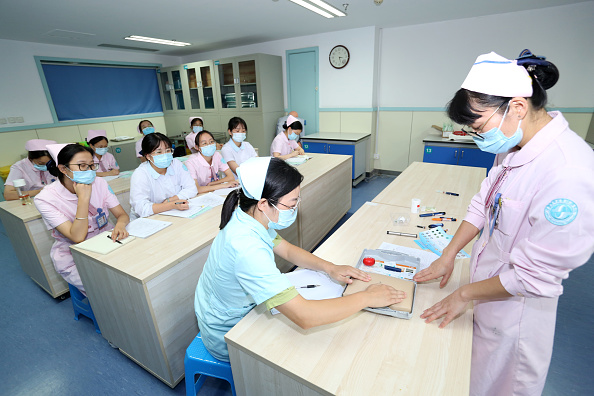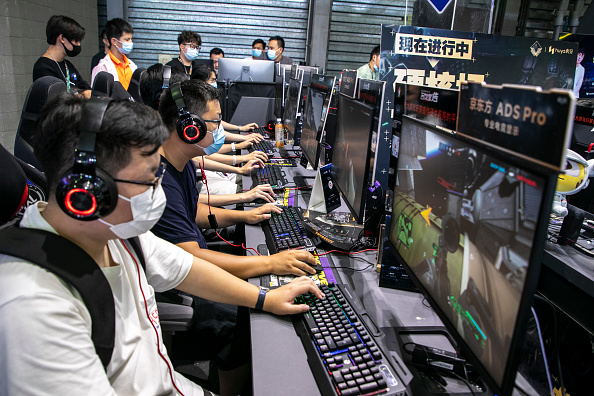
 Heightened Frustrations
Heightened FrustrationsAmerican business leaders are increasingly concerned about the lack of clarity in President Biden's China trade policy and the prolonged decoupling of the world's two largest economies. Companies in the U.S. have seen their supply chains disrupted, not only by the global pandemic but also by the new administration's adherence to Trump's aggressive tariff hikes. While business lobbyists have petitioned Congress to remove the tariffs, separate House and Senate bills are advancing, proposing that billions of dollars be allocated towards countering China's economic rise. Recent remarks by Katherine Tai, though, have not indicated a move towards more open trade, as she emphasized last week that we need to approach the trade relationship with "deliberation."
A speech given this week by Qin Gang, the new Chinese Ambassador to the U.S., also addressed the need for a constructive trade relationship, stating that China-U.S. trade supports millions of American jobs and is a positive-sum relationship. He also described conversations he had with the American business community in China, and claimed that they are "firmly opposed to the trade war, to decoupling, and to cutting off supplies to Chinese companies," concerns that seem to echo those of corporate business leaders in the States.
Additionally, Qin used his speech to criticize Washington for its "cold war" mentality toward Beijing, a distinct difference in tone than positive comments he made towards the U.S. when he first arrived to the post in July. He also invoked China's nuclear weapons capability and likened America's actions to "suppressing China," and warned the U.S. to not cross China's "red-line" on core issues, like Xinjiang, Taiwan, and the South China Sea. While the speech took a harsher tone in some regards, there were also glimpses of hope, as Qin said he was committed to a "more rational, stable, manageable and constructive China-U.S. relationship," and that China continues to see opportunities for bilateral cooperation on issues like fighting the pandemic and climate change. Read more in "On Ambassador Qin Gang's Balancing Act," by Brian Wong.
 A Healthy Society
A Healthy SocietyChinese officials this week announced reforms targeting the healthcare industry, as part of its push to create more affordable healthcare. This follows President Xi Jinping's recent call for "common prosperity," as well as recent regulatory changes within the education sector and on property prices. China's new pilot pricing program for public hospitals seeks to ensure "proper compensation for service providers and affordable costs for consumers." To do this, the health reforms are primarily focused on mitigating the rising cost of medical care, by preventing hospitals from collecting revenue from selling pharmaceuticals.
Public health has been a global focus since the beginning of the pandemic, and China - the first nation to identify the COVID-19 outbreak - is continuing to emphasize a healthy society in its latest round of reforms. China's 996 work culture, which describes a 6 day week working 12 hours per day, is under scrutiny for causing physical and mental health issues for employees. Forced overtime without proper compensation has been ruled illegal by authorities, especially as worker suicides have generated alarm in Chinese society.
 Gaming Grievances
Gaming GrievancesChina also instituted new limits on "youth video game addiction" by imposing a limit on the amount of time youth can spend playing video games each week. The new rules, released by the National Press and Publication Administration, restrict online gamers under the age of 18 to playing just three hours per week, capping playing time to one hour on Fridays, weekends, and public holidays, and forbidding online gaming during school days. The administration said the limits are partially in response to parent demands, who believe youth game addiction is "seriously harming their normal study, life and mental and physical health." Chinese President Xi Jinping has also publicly warned about the threats of video game addiction in recent months.
While some fear the move will impact China's online gaming industry, one of the country's most profitable sectors, major Chinese gaming stocks rallied on Wednesday, and investors have continued to buy into China's major gaming companies.
The Chinese government is also placing regulations aimed at teen celebrity fan clubs and pop culture icons. Last week, China's Cyberspace Administration banned the ranking of celebrities by popularity on social media accounts like Weibo, and called for more control on the "chaos" of fan clubs and their influence over television programs, movies, and music. As the new restrictions on bot "idol culture" and online gaming have developed, the government has reiterated that their focus is on China's children, whom they fear are "being inundated by a toxic culture that poisons their minds," and emphasized that its goal is to "more actively shape the next generation of Chinese people."
Prepared by China-US Focus editorial teams in Hong Kong and New York, this weekly newsletter offers you snap shots of latest trends and developments emerging from China every week, while adding a dose of historical perspective.
- 2021-08-27 China’s Backyard
- 2021-08-20 Graveyard of Empires
- 2021-08-13 A New Crossroads
- 2021-08-06 Lowering Barriers
- 2021-07-30 A Diplomatic Stalemate
- 2021-07-23 A Climate for Change
- 2021-07-16 The Trade Game
- 2021-07-09 Existential Threats
- 2021-07-01 Centenary Celebrations
- 2021-06-25 Critical Crossroads
- 2021-06-18 Part of the Club
- 2021-06-11 Retaliatory Legislation
- 2021-06-04 "Defanging" Diplomacy
- 2021-05-28 The End of an Era?
- 2021-05-21 One Step Forward, One Step Back
- 2021-05-14 Drifting Trade Ties
- 2021-05-07 Time to Talk
- 2021-04-30 Academic Pandemic
- 2021-04-23 Carbon Cutting
- 2021-04-16 A Hopeful Climate